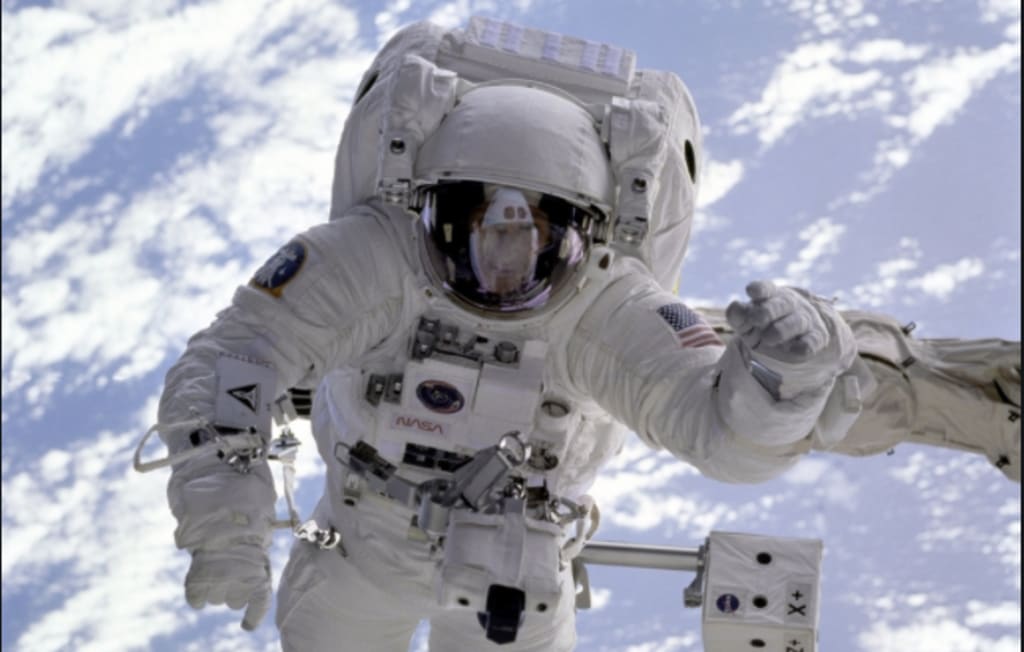What psychological training is needed to become an astronaut?
astronaut

What qualities do astronauts need?
Manned space flight requires astronauts to have good psychological qualities. Therefore, on the basis of careful selection, various psychological trainings must be implemented for astronauts to cultivate good professional personality and psychological qualities of astronauts, which lays a foundation for the smooth completion of space flight missions. Good psychological foundation.
Training to improve the psychological quality of astronauts requires comprehensive and systematic training to be completed in coordination.
On the basis of science and strict selection, through physical training and space environment adaptability training, astronauts can have a healthy body and good physical fitness, and have good endurance and adaptability to the space environment.
Mastering scientific methods of physiology and psychological regulation and improving adaptability can lay a solid physical foundation for good psychological quality.
Through knowledge and skill training, astronauts can master the necessary professional knowledge and operational skills, be familiar with and proficiently master flight plans, flight procedures, flight tasks, and have a full understanding and experience of the flight process, flight events and their feelings, so as to make the spaceflight The members should know what they are doing, and "knowledge in their minds."
In particular, aviation flight training, parachuting training, life-saving and survival training are very effective in training astronauts to be brave, fearless, calm, calm, strong, decisive and other excellent psychological qualities, and to improve their analysis, judgment, decision-making reaction ability and psychological stability. of. All these trainings can help astronauts build self-confidence and confidence.
In addition, by setting up special psychology training courses, astronauts can master the necessary psychological knowledge, scientific psychological control methods and scientific memory methods, which are very beneficial to consolidate and improve the training effects of professional skills. It can be seen that psychological training is closely related to other vocational training for astronauts and plays a complementary role.
The special psychological training programs for astronauts mainly include basic aerospace psychology and mental health education, isolation training in a small environment, relaxation training, appearance training, psychological compatibility training, etc.
01
Through space psychology basics and mental health education, trainees can understand the impact of space activities on people and the requirements of people's psychological quality, clarify the direction of their own efforts, master the methods of maintaining mental health and psychological adjustment, and learn to self-manage emotions.
02
Isolation training is one of the most important and characteristic content of astronauts' psychological training. The purpose is to understand the individual psychological characteristics and behaviors of astronauts, and to cultivate astronauts’ ability to work, tolerate and adapt in a small environment. Discover potential problems and tap the potential of the trainees.
Isolation training is not only a psychological training item, but also an important content of psychological selection during the training period. Isolation training usually allows the trainee to live alone in a small isolation room, and perform psychological and physical tests according to a pre-designed schedule.
During the isolation period, the trainees must not only perform instrument operations, but also write and exercise. Meals and food are provided on time by the delivery window of the isolation room.
This kind of training is usually carried out by continuous work for 3 to 7 days.
03
Relaxation training can enable astronauts to master various relaxation methods and emotional self-regulation methods, and help astronauts relieve tension. Commonly used methods include yoga relaxation exercises, relaxation response methods, progressive muscle relaxation, autogenic training, self-hypnosis and self-suggestion, others' hypnosis and biofeedback training, etc.
04
Appearance training is generally combined with relaxation training, professional technical training, and flight procedure training. Usually, in a relaxed state, the astronaut can imagine certain operation methods, procedures and action essentials, imagine the measures to be taken when an emergency situation arises, imagine the internal layout of the spacecraft, etc., and establish a clear and correct representation in his mind. To help improve the training effect.
05
Psychological compatibility training is mainly for the psychological compatibility and collaboration ability of the crew.
Through training, astronauts can master the correct interpersonal skills, learn the methods and skills of communicating with others, learn how to resolve contradictions and conflicts in the crew, ease interpersonal relationships, and master the methods and skills of providing psychological support to others. The habit of team cooperation, understand the influence of words and deeds on the efficiency of the team, and methods to promote the efficiency of the team to improve the overall efficiency of the team.
About the Creator
Enjoyed the story? Support the Creator.
Subscribe for free to receive all their stories in your feed. You could also pledge your support or give them a one-off tip, letting them know you appreciate their work.






Comments
There are no comments for this story
Be the first to respond and start the conversation.